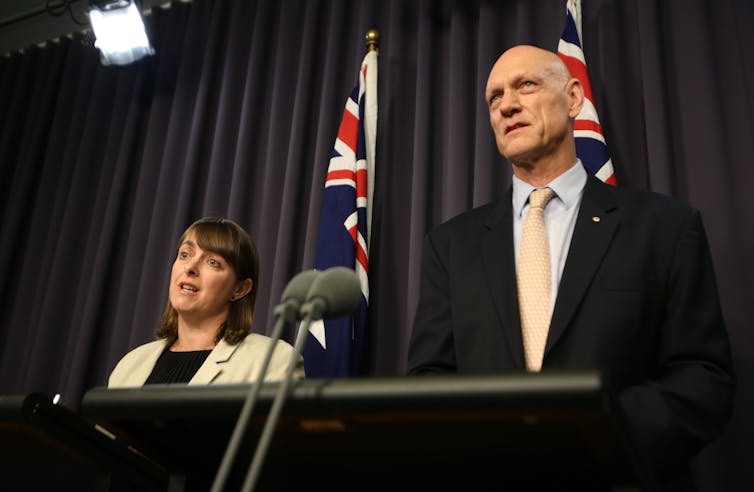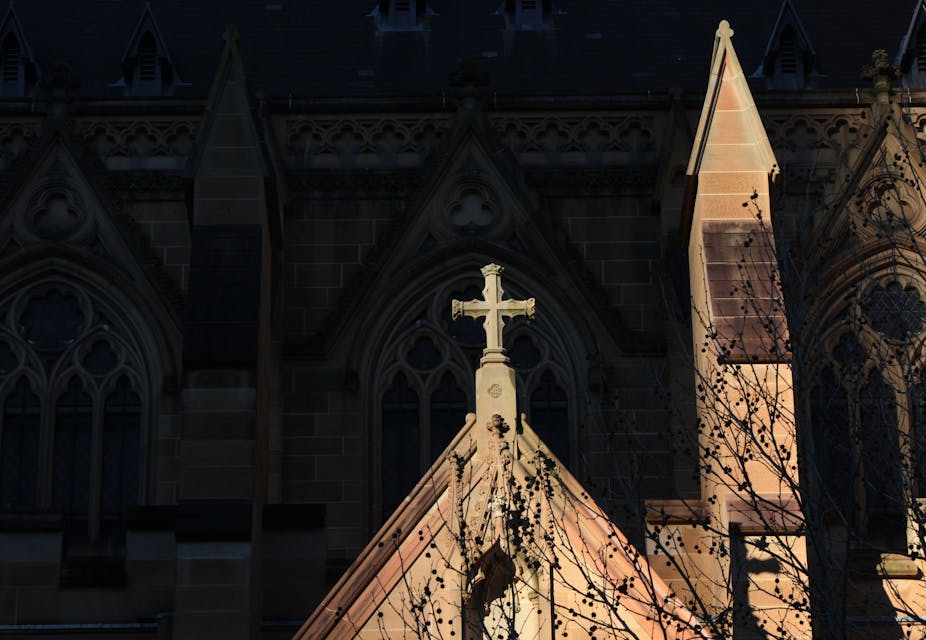Following education minister Christopher Pyne’s announcement last week of a review of the new Australian school curriculum, one of the reviewers, Kevin Donnelly, claimed in an interview that the national curriculum needs more religion because it is “very secular”.
Donnelly indicates that, prior even to the review being carried out, he has already formed the opinion that the Australian curriculum ought to be less secular. He therefore thinks this objective can be achieved by making the curriculum more religious.
Yet surely Donnelly is proud that Australia is neither a theocracy nor a state that is exclusionary of religion. Rather, it is a secular society that aspires to be inclusive of diverse non-religious and religious groups. This contradiction between an understanding of the secular as an aspiration and a view of the secular as a defect warrants discussion of Donnelly’s use of the term.
An exclusionary understanding of ‘secular’
Donnelly’s rationale for including more religion in the Australian curriculum depicts secularism as a malady and religion as its cure. This reduces “secular” to a pejorative word and plays off the notion of what it means to be secular against what it means to be religious.
This is not the first time that Donnelly has publicly characterised secularism as opposed to religion. In an article entitled “National Curriculum’s crusade against Christianity” that appeared last year in News Weekly – a magazine published by an organisation described as a right-wing think-tank, the National Civic Council – Donnelly argued that “religion is rarely mentioned” in the civics and citizenship segment of the new curriculum, and that:
Christianity is airbrushed from the nation’s civic life.
Donnelly attributed the alleged silence about religion in the Australian curriculum to the agenda of “secular critics” who:
…want to banish religion from the public square and ignore the essential role Christianity plays in the story of Western civilisation.
Finally, Donnelly claimed that the purported absence of religion from “a secular” curriculum will have a corrosive effect on the religious worldviews into which religious schools seek to initiate learners.
While Donnelly represents the secular as self-evidently opposed to – and even hostile towards – religion, such a view of secularism as exclusionary of religion is by no means the only possible understanding of secularism.
Recent debate about religion in Australian education
Donnelly’s derision for the word “secular” seems calculated to reignite a debate that has flared up in recent years in response to calls from disparate groups for the inclusion, exclusion or reform of religion in Australian schooling.
For example, an ethics-based class was introduced in 2010 into NSW state primary schools as a complement to Special Religious Education. In 2012, a tribunal ruled against a group of parents who argued that the Victorian Education Department discriminated against children who opted out of Special Religious Instruction in state primary schools.
In 2012, the High Court ruled that the National School Chaplaincy Program was constitutionally invalid because it exceeded the Commonwealth’s funding powers. In 2011, the Australian Curriculum, Assessment and Reporting Authority, the agency responsible for developing the Australian curriculum, held a roundtable discussion on the inclusion of religion and ethics as an academic subject in the curriculum.

This brief overview of key events that have arisen lately in the Australian context brings to light the complex and controversial nature of the debate about the presence of religion in Australian schooling. And yet, Donnelly’s promotion of a narrow interpretation of the secular obscures the multifaceted nature of this debate by reducing it to a conflict between the non-religious and the religious.
Towards an inclusive, secular curriculum
Donnelly’s claim that the new curriculum is silent about religion should be a matter of concern for both non-religious and religious Australians. In order to build a secular society that is inclusive of pluralism, there is a clear need for an Australian curriculum that is secular in providing opportunities for non-religious and religious students in state and religious schools to develop an understanding and appreciation of those with very different worldviews from their own.
It would be valuable for Australia, as a secular society, if Donnelly were to exchange his narrow understanding of secularism for an expansive view of it as a democratic ideal of inclusivity.
Then, if Donnelly were to find in his forthcoming review that a religious dimension is not sufficiently represented or is even missing altogether from the new curriculum, this could be taken to indicate not that the Australian curriculum is too secular but, rather, not secular enough.

